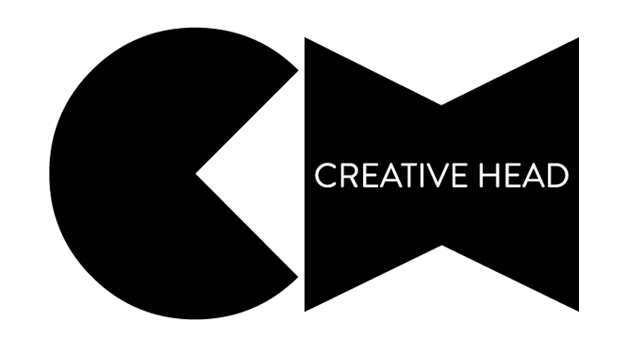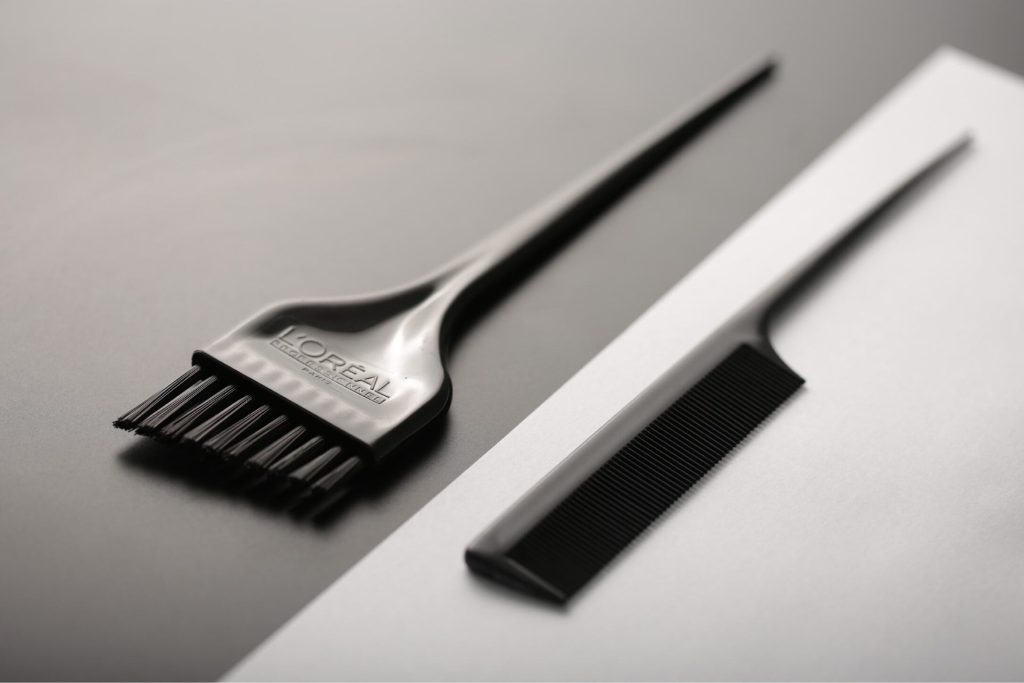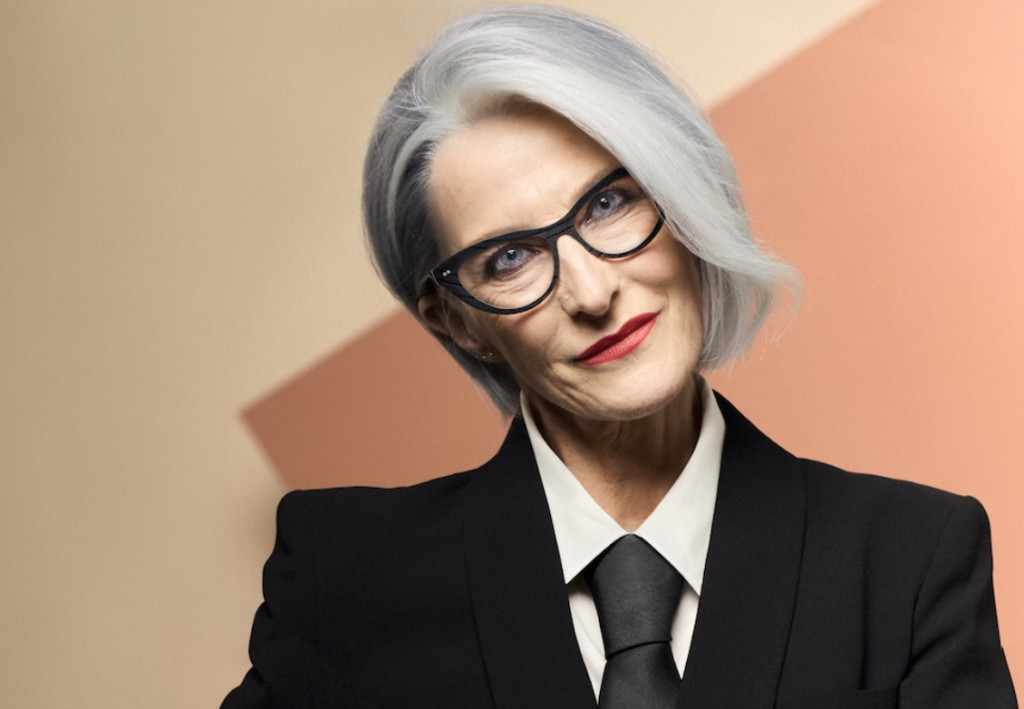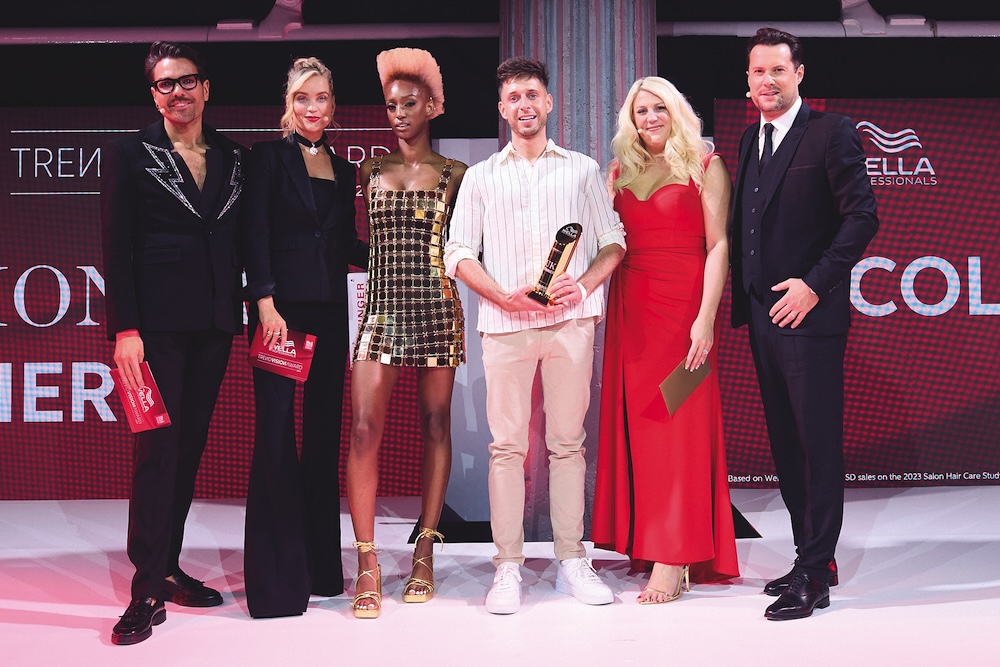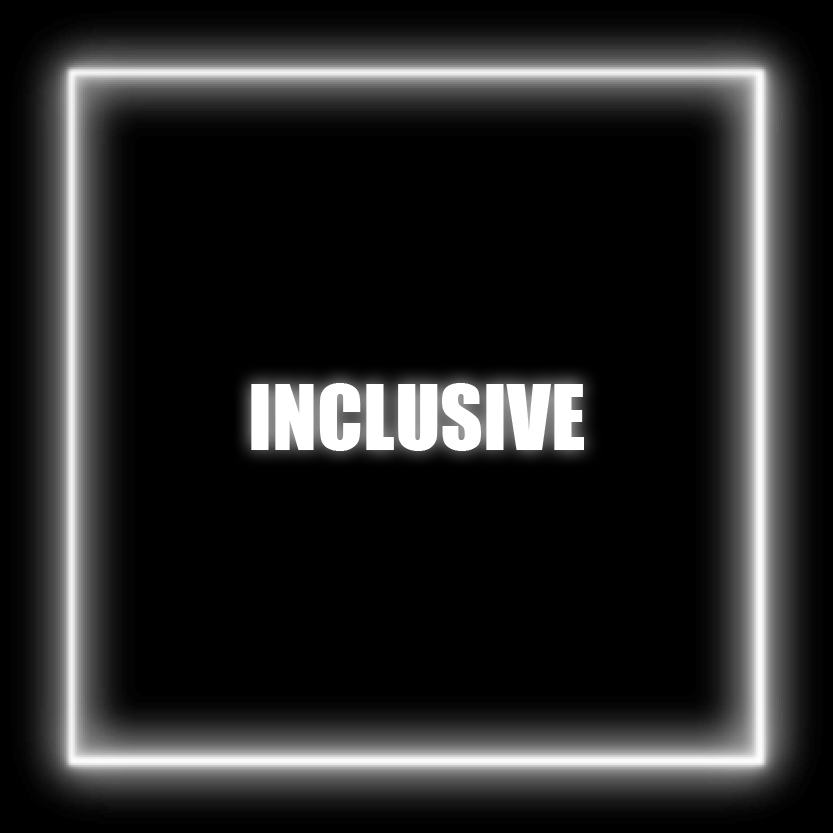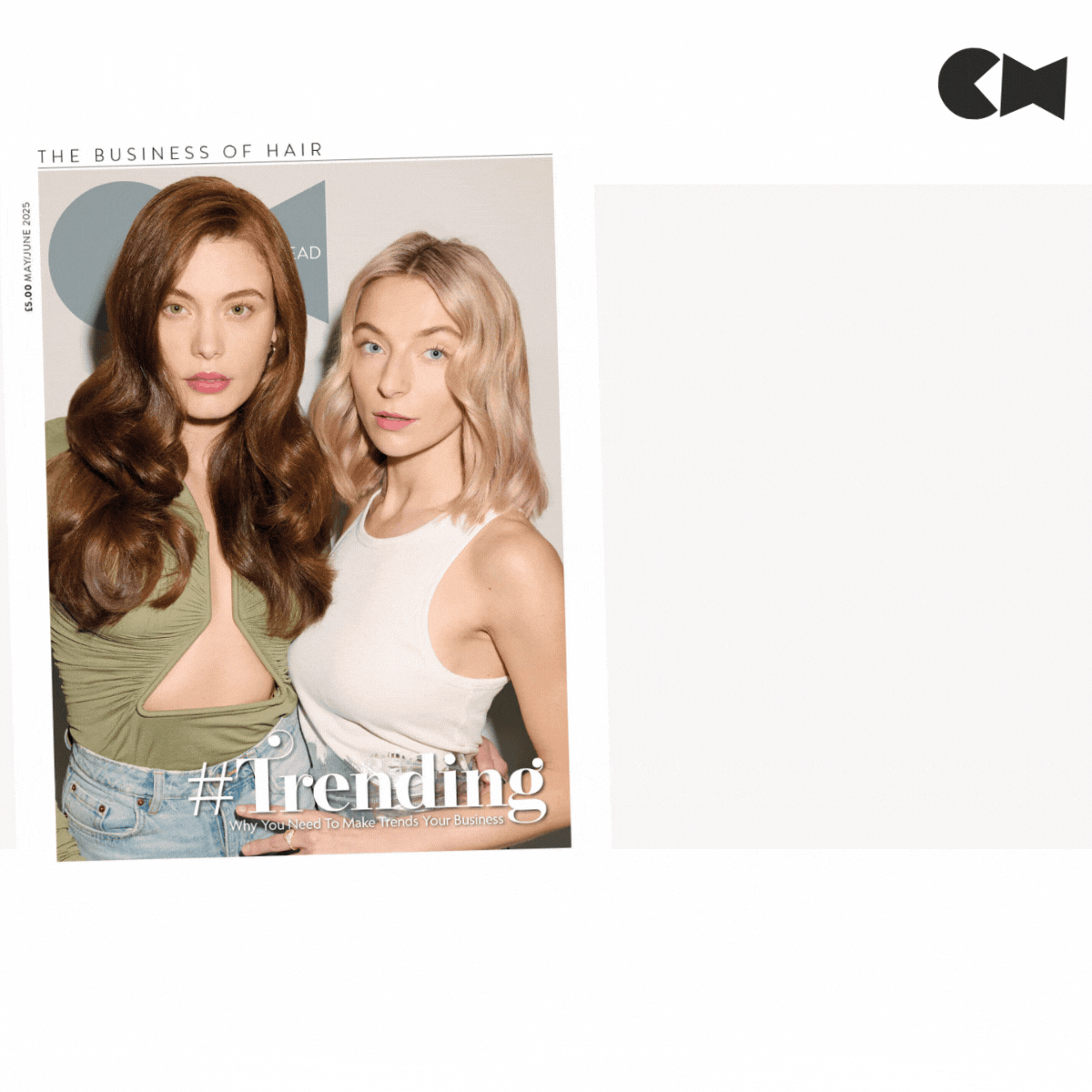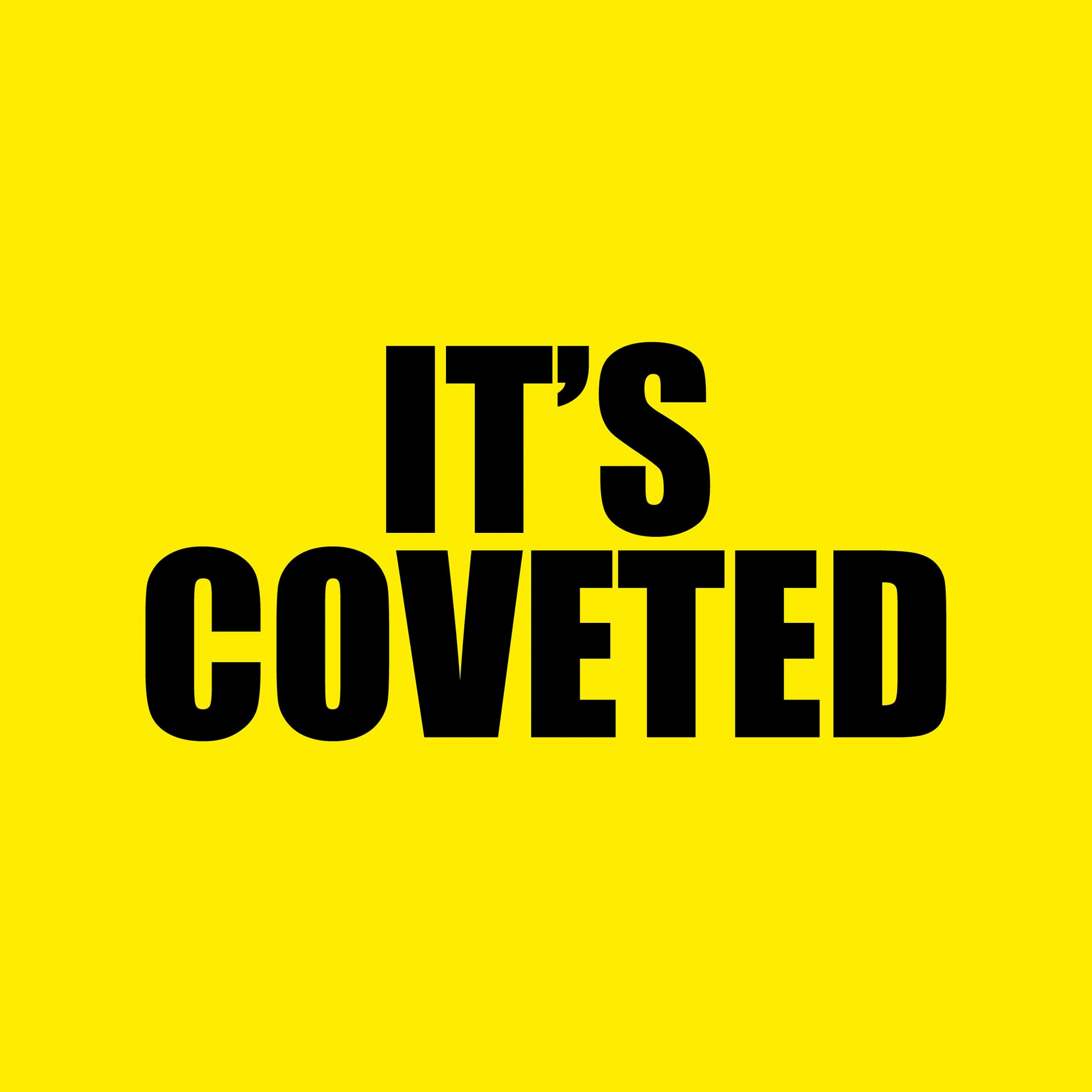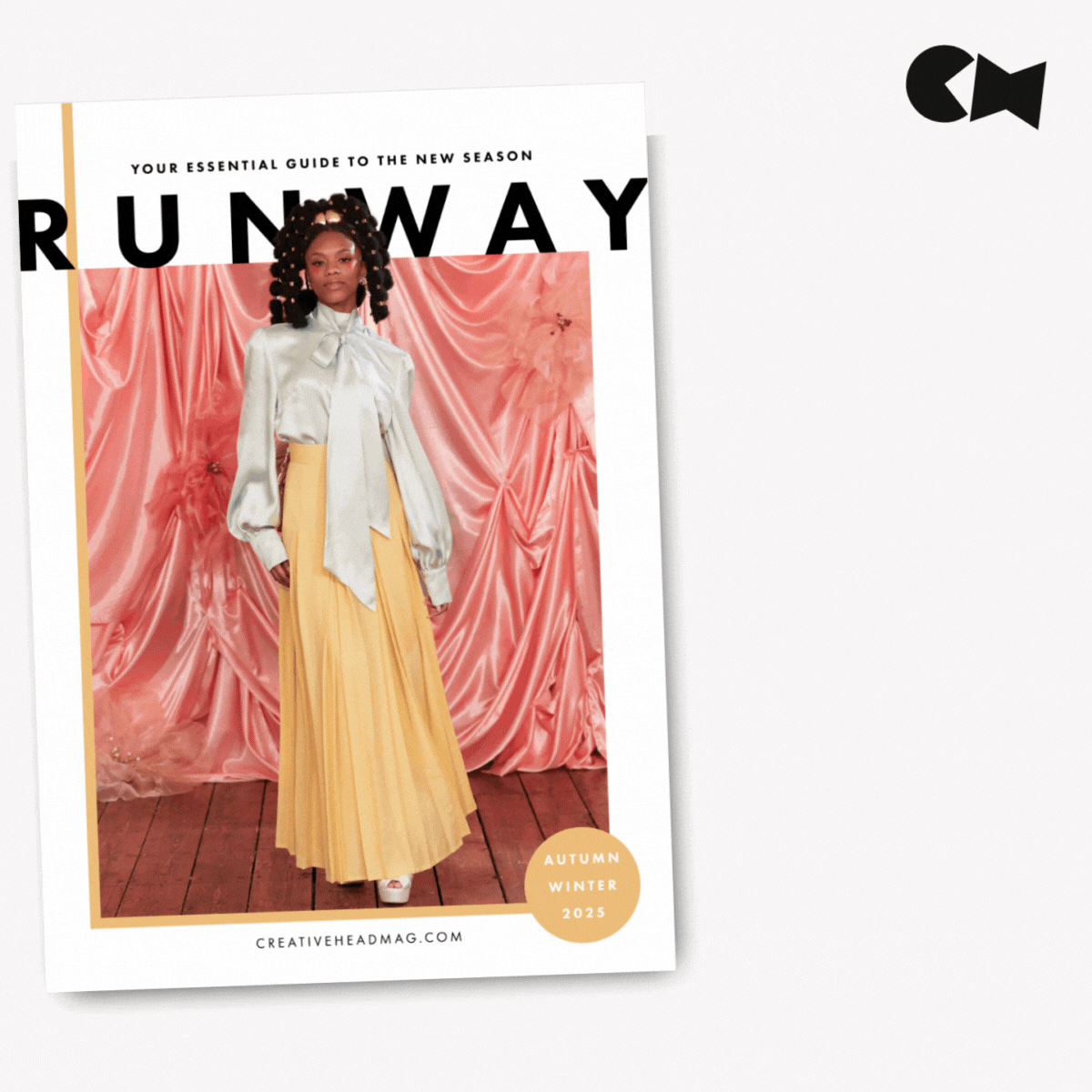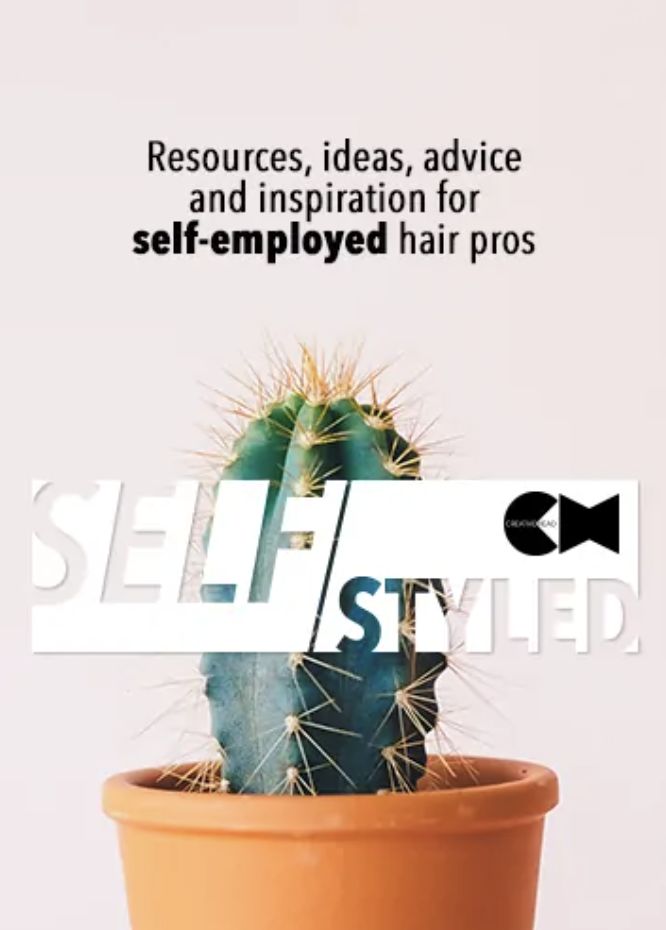Sam McKnight: Why I’ve Joined A New Union For Fashion Creatives
Set up to tackle widespread exploitative workplace practices, Bectu Fashion UK hopes to bring about change
by C | DOCUMENTS
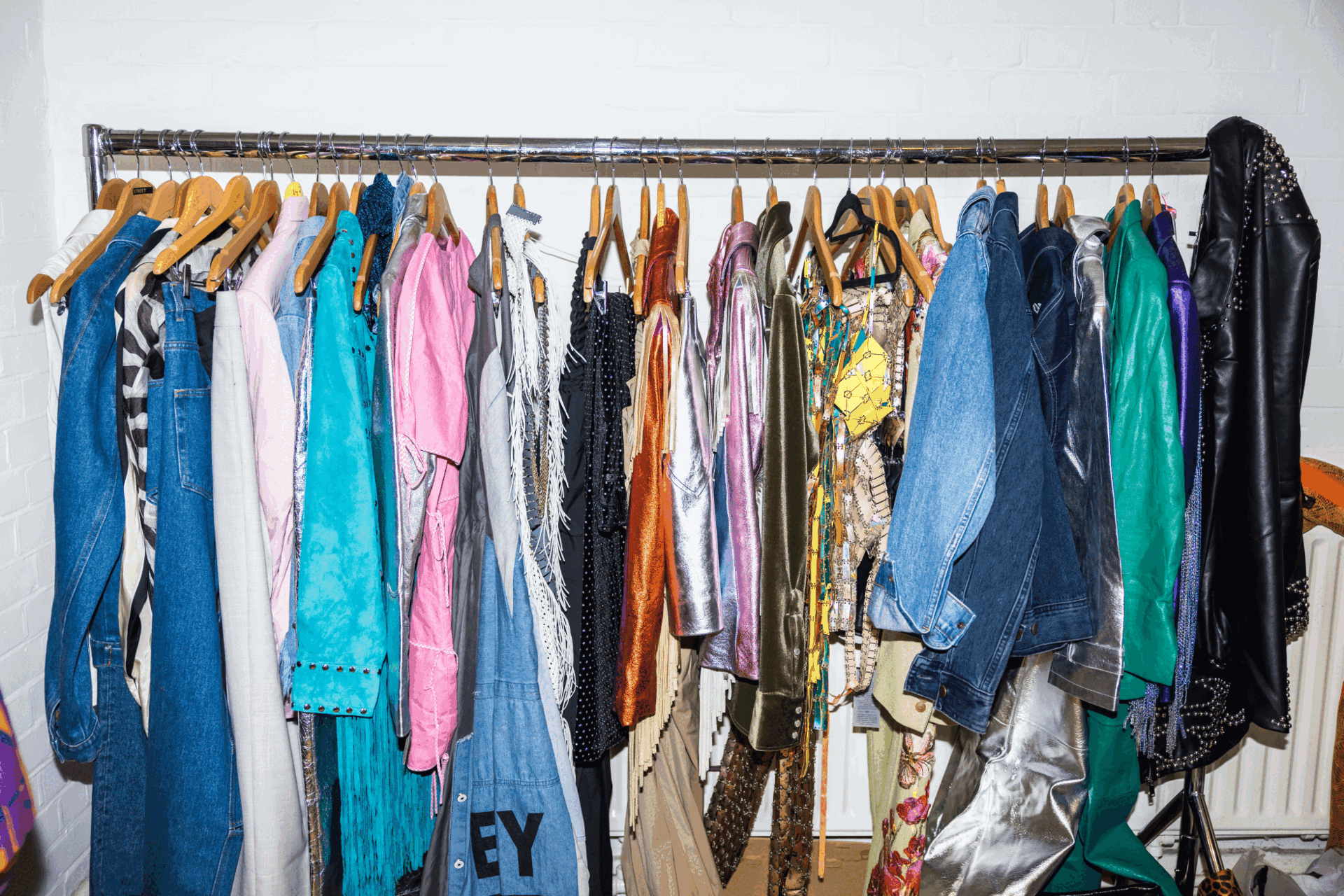
In March 2024, not long after the A/W show season had come to a close, Creative HEAD reported on how hair creatives were being bullied to work for free in a fashion industry that generates an astonishing £37bn every year, according to the British Fashion Council. Sadly, low – or often no – pay, long hours and toxic workplace cultures are the norm for many freelance session stylists, as well as the make-up artists, clothes stylists and nail techs who work alongside them.
And it’s not just young talents at the outset of their career who are affected. Even session legend Sam McKnight gets treated badly. “As with everything in life, the money stays at the top and doesn’t trickle down – and hair and make-up are the easiest victims,” he says.
Well, now Sam – and the many thousands of other creatives who work in fashion backstage, on set and for the red carpet – have a new champion. Bectu, the long-established union representing staff, contract and freelance workers in the media and entertainment industries, has been working with a specialist committee to help fashion creatives launch a union all for themselves. And now it’s ready.
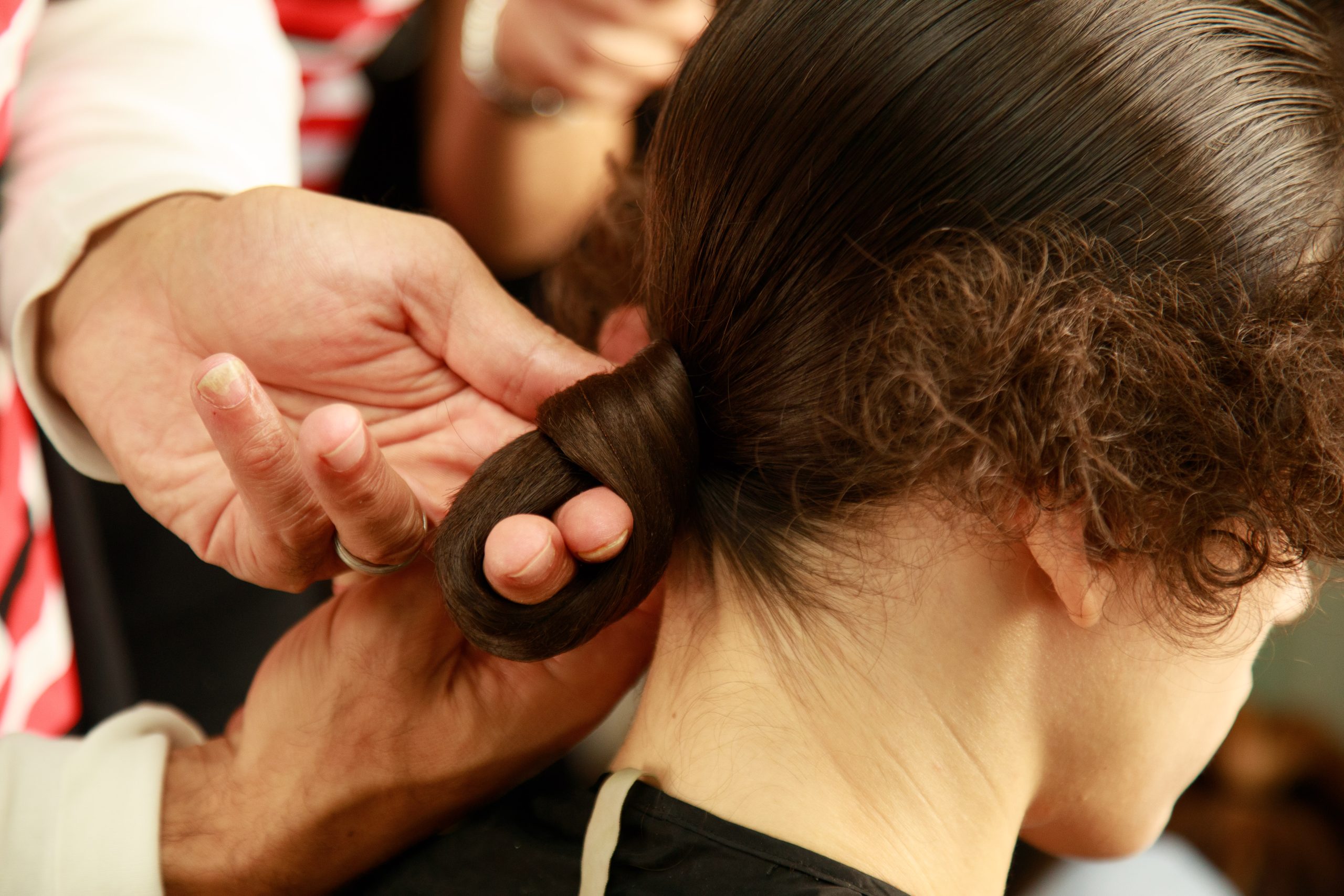
Bectu Fashion UK is a new branch of Bectu that has been created specifically to represent freelance hairdressers and other creatives in a non-performance fashion role. Membership gives you access to advice on any aspect of your work, from whether your pay is above national minimum wage to bullying, as well as a 24-hour legal support helpline, assistance with chasing monies owed and discounted Public Liability Insurance that’s tailored specifically to fashion creatives. There are also plans to provide tools, training and guidance to help fashion workers negotiate their pay, terms and conditions.
Membership fees are dependent on your gross annual earnings, ranging from £10/month to £350 annually.
“Because there’s no history of unionisation in fashion, this is a space that we need people to buy into, because if we don’t get that groundswell of involvement, it’s not going to work”
But Bectu and the Fashion UK committee are clear that for this new union to work, everybody needs to work together and participate. The more people who join Bectu Fashion UK, the bigger the opportunity to change the industry for the better – for example, by demanding fair pay and treatment – and the approach they are taking is highly collaborative. They’ve set up a WhatsApp group you can join, even if you’re not a Bectu member, so you can share experiences with fellow fashion creatives, you have access to member meetings and you can even join the committee yourself when elections come around. And because Bectu has helped many other similar sectors to unionise, they can look to those for guidance and learnings and to understand how to make progress more quickly.
Says Bectu Negotiations Executive, Naomi Taylor: “Because there’s no history of unionisation in fashion, what we’re saying is this is a space that we need people to buy into, because if we don’t get that groundswell of involvement, it’s not going to work. Yes, we need membership subscriptions to resource it, but we also need people to participate in things like surveys so we can get data around the issues that people are dealing with and that will allow us to work out what we can do to help.”
The Fashion UK committee is clear that understanding the key issues facing sector workers is vital, and has already conducted a survey of around 500 fashion creatives, the results of which will be released in February 2025, ahead of Fashion Week (see snapshot below).
Says Naomi: “If we can build the numbers to a kind of tipping point, where we can start to campaign on the issues that are coming out of the survey, then we can start to put pressure on employers and on government also, because a lot of the changes that are being introduced around employment rights are not going to be impactful for people who are self-employed or freelancers. This is one of the most important things about being in a union – having someone to speak up for you.”

Bectu Fashion UK committee member Famida Pathan is a freelance make-up artist with first-hand experience of typical freelance struggles. She finds being part of Bectu Fashion UK particularly useful when dealing with issues like monies owed: “In the past, I found myself pursuing bad debt through the Small Claims Courts. But having a union means I can go to someone who will step in on my behalf, whether that’s talking to the client directly or even pursuing a legal claim if they think there’s a good chance of success. I’ve been working in this industry for 20 years and this is the first time I’ve felt there’s support for me in my career. I no longer feel like I’m on my own.”
“I’ve joined Bectu Fashion UK because things need to change” – Sam McKnight
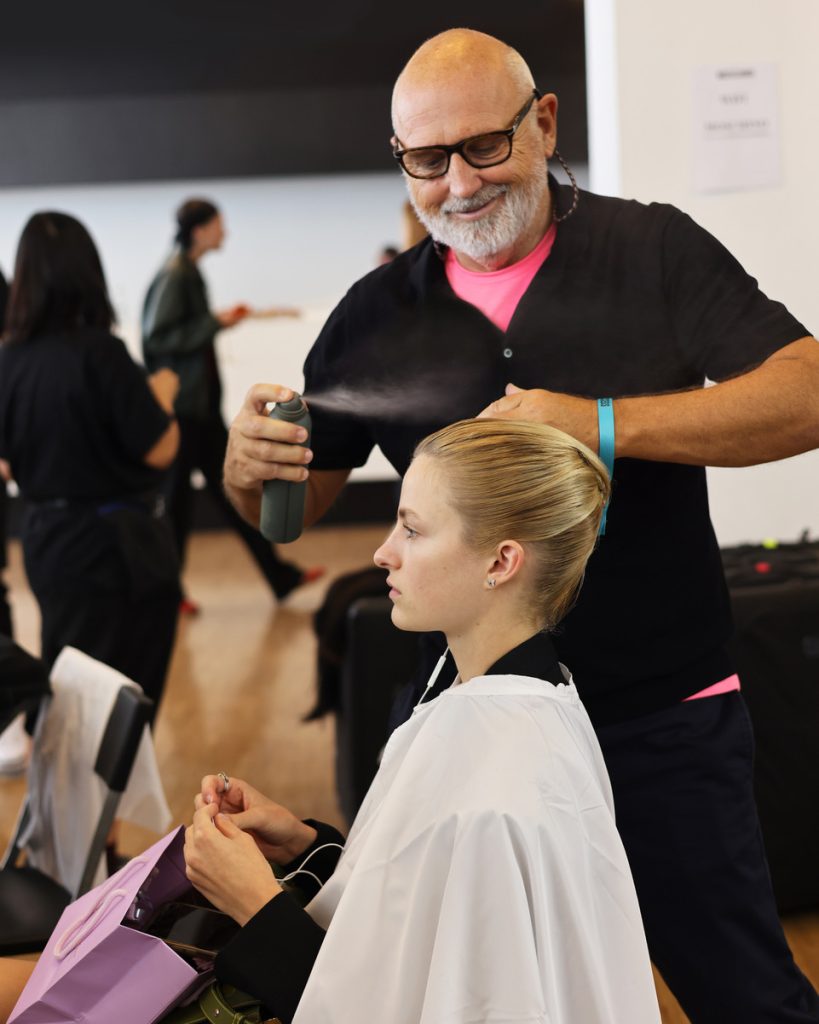 |
“The situation for fashion creatives has been getting incrementally worse over the past 20 years. It’s multi-layered, but there’s been a devaluation of what we do, a lack of respect. We’re not called ‘hair and make-up’ anymore; since social media came along, we’re Glam Squad. I find that offensive because it diminishes what we do and takes away your individuality.
|
“It’s come about because there are people working in the industry now who are not educated in what it is we do and have no idea of what’s gone before and what we need. They’re just a person with a clipboard. As a consequence, backstage conditions have become scuzzier, smaller and with the wrong kind of equipment. Meanwhile, on set you’ll find that the lighting guy and the caterer will get credited, but not the hair and make-up. And this is despite the fact that beauty advertising is bringing in more money for magazines than fashion. And if Vogue aren’t crediting you, then that sends a message down the line that everyone thinks that’s okay.
“In the piece that Creative HEAD wrote about pay someone said something that I found interesting – that we shouldn’t get too pushy about being paid because we’re creating art. And I thought, ‘Yes, absolutely. And that’s where the abuse starts.’ Because these people know that we’re so desperate to create that, and of course we’ll do it for free, but actually it’s not your art – you are creating it for somebody else who owns it. It’s never yours unless you’ve paid for it.
“The reason why I’ve joined Bectu Fashion UK and am advocating for them is because things need to change. I can speak up because I don’t give a shit if people don’t book me anymore, whereas someone less established in their career might not want to for fear of getting blacklisted. I’ve heard a few horror stories from people saying their agents have forbidden them to join any union, which is totally illegal. The agent is now bullying the stylist!
“So, yes, there will be people who don’t want to change the status-quo because they can draw on this amazing talent pool for free and they don’t want the uprising. But that’s not going to stop us. It’s important that we structure minimum day rates and impose certain working conditions, because otherwise the Wild West will continue. Bectu Fashion UK is something I believe in and something I feel our industry needs. And I’m excited that in 2025 we’re really going to go for it!”
Sam McKnight’s award-winning haircare and styling range, Hair By Sam McKnight, is now available to be stocked in salons. For more info contact salons@sammcknight.com.
“I’ve joined Bectu Fashion UK because things need to change” – Sam McKnight
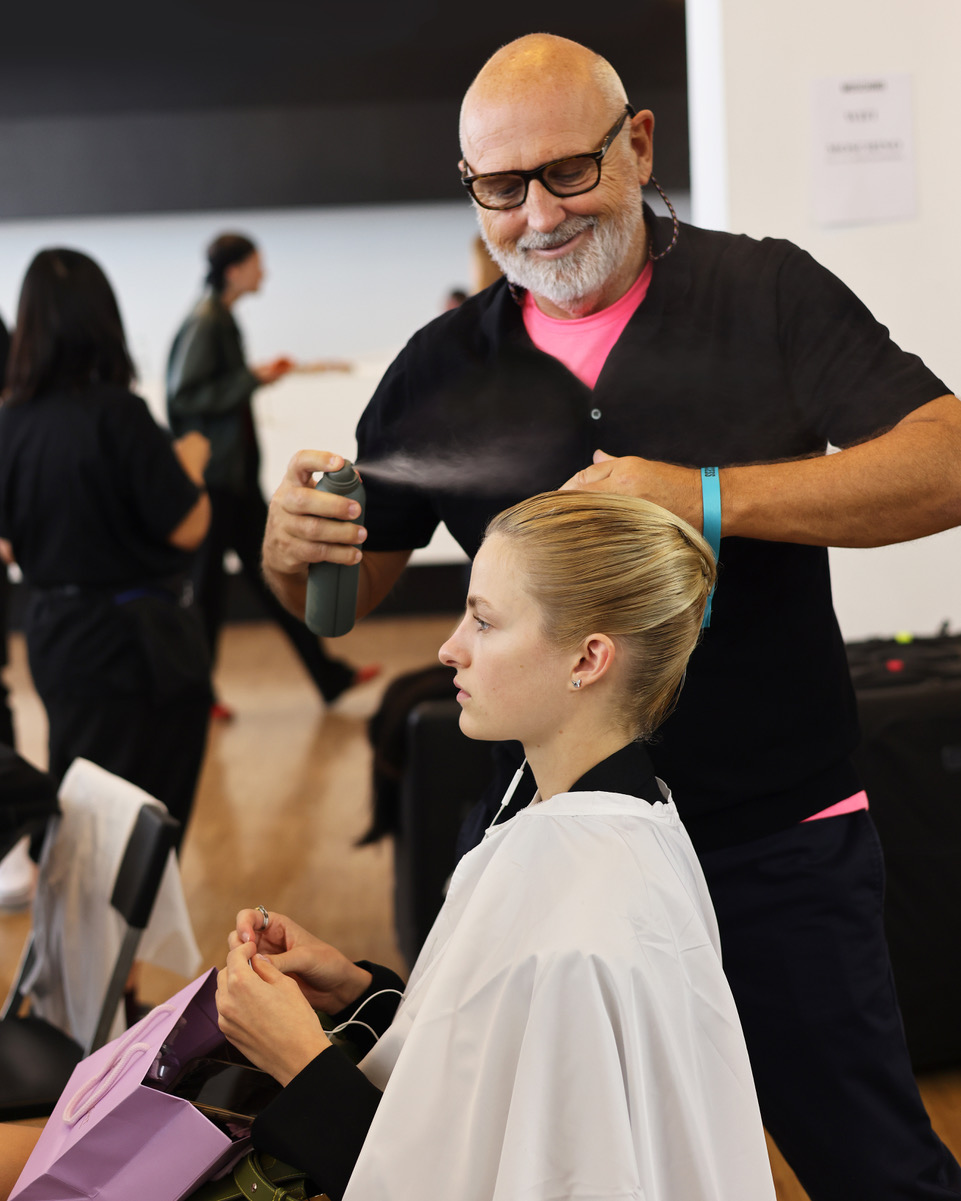
“The situation for fashion creatives has been getting incrementally worse over the past 20 years. It’s multi-layered, but there’s been a devaluation of what we do, a lack of respect. We’re not called ‘hair and make-up’ anymore; since social media came along, we’re Glam Squad. I find that offensive because it diminishes what we do and takes away your individuality.
“It’s come about because there are people working in the industry now who are not educated in what it is we do and have no idea of what’s gone before and what we need. They’re just a person with a clipboard. As a consequence, backstage conditions have become scuzzier, smaller and with the wrong kind of equipment. Meanwhile, on set you’ll find that the lighting guy and the caterer will get credited, but not the hair and make-up. And this is despite the fact that beauty advertising is bringing in more money for magazines than fashion. And if Vogue aren’t crediting you, then that sends a message down the line that everyone thinks that’s okay.
“In the piece that Creative HEAD wrote about pay someone said something that I found interesting – that we shouldn’t get too pushy about being paid because we’re creating art. And I thought, ‘Yes, absolutely. And that’s where the abuse starts.’ Because these people know that we’re so desperate to create that, and of course we’ll do it for free, but actually it’s not your art – you are creating it for somebody else who owns it. It’s never yours unless you’ve paid for it.
“The reason why I’ve joined Bectu Fashion UK and am advocating for them is because things need to change. I can speak up because I don’t give a shit if people don’t book me anymore, whereas someone less established in their career might not want to for fear of getting blacklisted. I’ve heard a few horror stories from people saying their agents have forbidden them to join any union, which is totally illegal. The agent is now bullying the stylist!
“So, yes, there will be people who don’t want to change the status-quo because they can draw on this amazing talent pool for free and they don’t want the uprising. But that’s not going to stop us. It’s important that we structure minimum day rates and impose certain working conditions, because otherwise the Wild West will continue. Bectu Fashion UK is something I believe in and something I feel our industry needs. And I’m excited that in 2025 we’re really going to go for it!”
Sam McKnight’s award-winning haircare and styling range, Hair By Sam McKnight, is now available to be stocked in salons. For more info contact salons@sammcknight.com.
Eight in 10 UK fashion creatives pressured to work for free, research shows
In autumn 2024, Bectu Fashion UK surveyed more than 500 fashion creatives working in roles such as hair and make-up artists, assistants, fashion and accessories designers and photographers about their workplace experiences. The survey found that:
• Just one in ten fashion creatives (10 per cent) say they feel secure in their job.
• Only 14 per cent are paid on time for the work they do.
• Half (51per cent) of fashion creatives are earning under £30,000 a year before tax from their work in the industry.
• More than seven in ten have struggled financially (72 per cent) in the past year
• Eight in ten (79 per cent) have felt pressured to work for free.
• And 83 per cent say that behaviours that would be considered toxic and inappropriate in public life are often tolerated in the fashion industry.
The responses also paint a bleak picture of poor work/life balance, with more than 7 in 10 reporting struggling with their mental health in the past year, and most (59%) saying their work has negatively impacted their personal relationships.
“Under-paid, under-respected and have no one to tell this to because HR is in the pockets of the CEO, who is our boss” – senior creative assistant
“The expectation seems to be that we, as freelancers, can be paid whenever suits the employer. There’s no other industry where you provide a service, and all terms are blatantly ignored with no consequences. It feels to me that it’s getting worse year on year” – photographic assistant
The full survey results will be published by Bectu Fashion UK in February 2025, just before London Fashion Week. Creative HEAD will report the findings as soon as they are made available.
